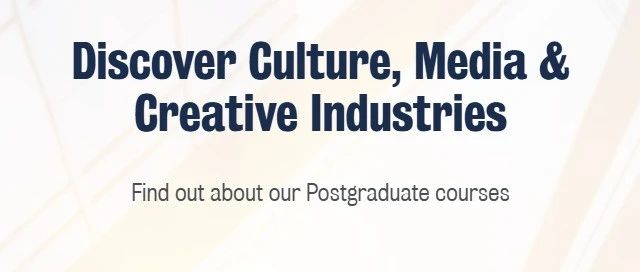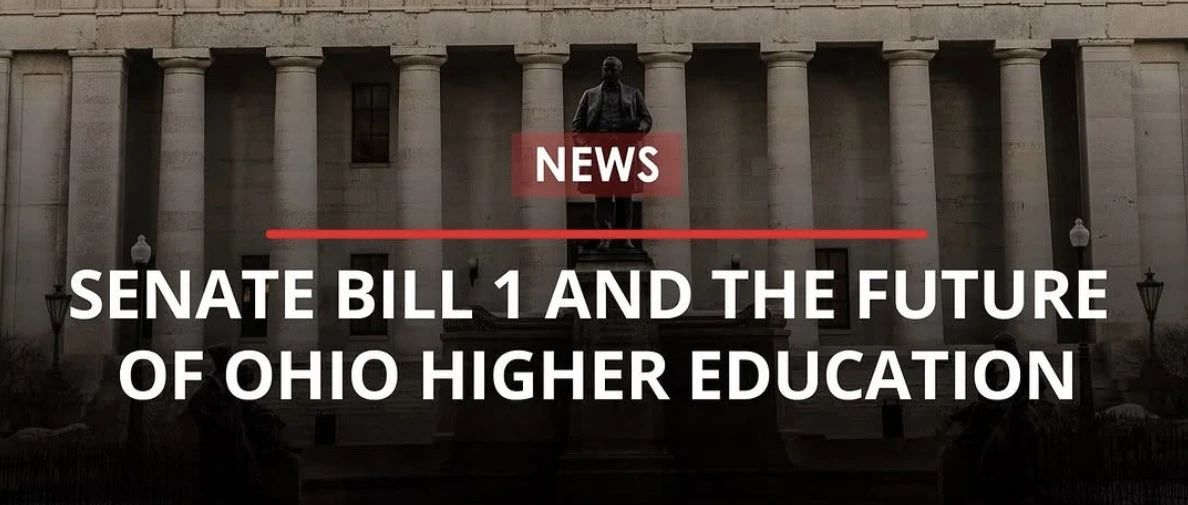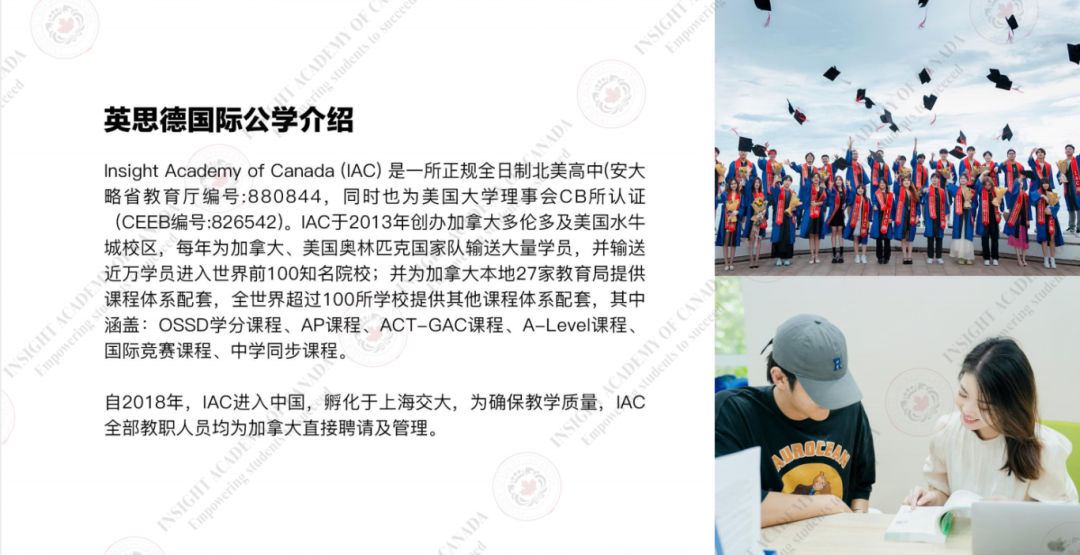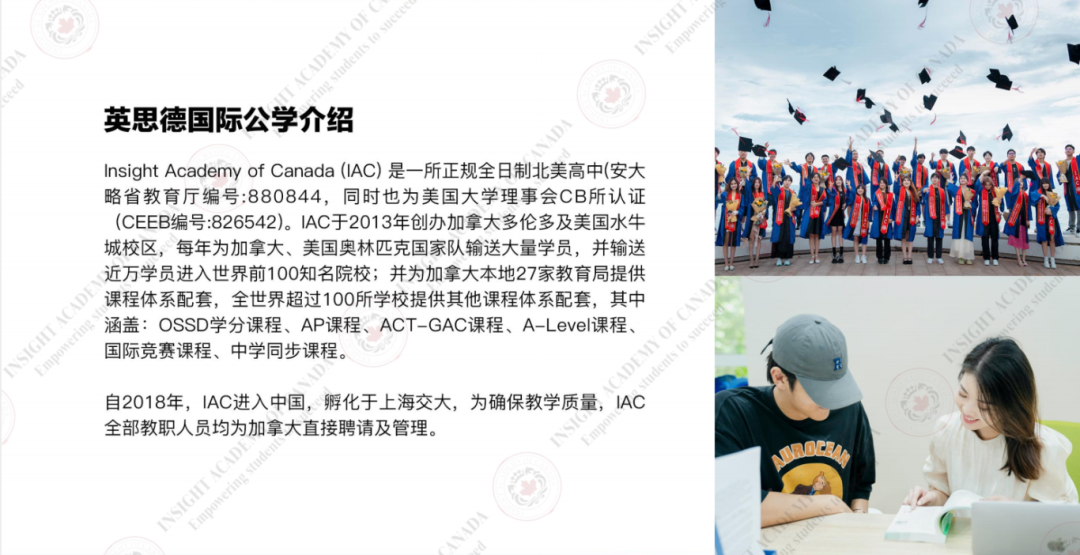想象一下,你正在大量阅读大学申请文书,其中,有一篇写着:
“As I consider all the challenges I have faced in my life, I find myself most affected by the experiences I have had working at a high-end coffee shop, where I learned some important lessons about myself.”
“当我思考一生中面临的所有挑战时,我发现我在一家高档咖啡店的打工经历对我的影响最大,在那里我学到了一些重要的经验教训。”
37个单词中,作者表明ta在咖啡馆中收获了重要的人生经验,除此之外呢?看起来是否会有些......平淡,没有抓到招生官的眼球,也不会让读者对此留下印象。提供美本申请范本网站的College Essay Guy在之前写过一篇35条最佳大学的文书建议,这就是其中一个反面案例。
不过别担心,本文的目的就是为了探讨如何避免在申请文书中踩雷,以及,教会你写出真诚、有效、可读性强的文书。
首先,我们可以再来看一个内容都和咖啡店相关的文书案例。
"I know her name is Amy but when she orders the vanilla macchiato she instructs me to write ‘Anastasia’ on the cardboard cup, deliberately pronouncing each letter as if it weren’t the hundredth time I’ve heard it. "
“我知道她叫Amy,但当她点香草玛奇朵时,她让我在纸杯上写‘Anastasia’,她故意读出每个字母,就好像我不是第100次听到一样。”
相比第一篇,这段文字是不是更加具体、直接?这是Smith学院老师Sally Rubenstone提供的文书建议。
换句话说,通过你自己的语言和声音来直接、了当地描述经历,是一种写文书的好办法。比起在写文书前就预设好的人设、内容或主题,美本申请文书没有你想象的那么华丽。
那么,你肯定要问,美本申请文书究竟要怎么写?有什么需要注意的吗?
当然有!好文书的样式千千万。比起直接告诉读者这是一篇好文书,本文则参考了Forbes网站中关于文书雷区的文章,总结了11点各大高校招生官的文书建议。
也希望大家写文书之前可以对照一下,以下常见文的书写作错误就不要再犯了哦!
01、不要试图揣测招生官的想法
雪城大学、斯克里普斯学院、佛蒙特大学等多所大学的招生官都一致建议学生“不要试图揣测招生官的想法,或者按照自己以为招生官想看到的内容去写作”,事实上招生官在阅读一篇文书之前并不会对文书内容有特定的期待,他们更关注的是文书是怎么体现申请者的个性:例如他喜欢做什么、想做什么、大部分时间花在哪里、是什么驱动他们做一件事情,最真实的表达自然而然会吸引到读者,正如汉普顿-悉尼学院招生主任克里斯塔尔·拉塞尔所说“如果你自己写这篇文书的时候都没有全情投入,那么我们读的时候也不会感兴趣”
Don’t Go In There
Peter Hagan, executive director of admissions at Syracuse University, sums it up best, saying, “I would recommend that students try not to get inside of our heads. He adds, “Too often the focus is on what they think we want.”
Victoria Romero, vice president for enrollment, at Scripps College adds, “Do not write about something you don’t care about.” She says, “I think students try to figure out what an admission officer wants to read, and the reality is the reader begins every next essay with no expectations about the content THEY want to read.” Chrystal Russell, dean of admission at Hampden-Sydney College, agrees, saying, “If you're not interested in writing it, we will not be interested when reading it.” Jay Jacobs, vice provost for enrollment management at the University of Vermont elaborates, advising. “Don’t try to make yourself sound any different than you are.” He says, “The number one goal for admission officers is to better understand the applicant, what they like to do, what they want to do, where they spend the majority of their time, and what makes them tick. If a student stays genuine to that, it will shine through and make an engaging and successful essay.”
02、不要使用人工智能
近年来在大学招生的新闻中,人工智能在文书中的应用逐渐成为热门议题。越来越多的高校明确不建议甚至禁止学生在文书写作过程中使用人工智能,例如UCAS指出使用AI可能会被视作作弊。
UCAS官方截图
刨除大学规定,AI作为大数据支撑的辅助工具本身并不能展现学生作为一个独立思考者所具备的个性。对于招生官而言,一篇好的文书不一定要辞藻华丽,但一定要能够从字里行间感受到学生真实的思考和对事物的洞察。诚如佐治亚理工学院执行主任里克·克拉克所说:“大学申请的大部分内容都是表格和数字。而文书和补充材料是唯一能展示个性、建立联系、体现独特性的地方。而目前AI还远远做不到这三点。”
Don’t Be Artificial
The headlines about college admission are dominated by stories about artificial intelligence and the college essay. Let’s set some ground rules–to allow ChatGPT or some other tool to do your work is not only unethical, it is also unintelligent. The only worse mistake you could make is to let another human write your essay for you. Instead of preoccupying yourself with whether or not colleges are using AI detection software (most are not), spend your time focused on how best to express yourself authentically. Rick Clark is the executive director of strategic student success at Georgia Institute of Technology, one of the first institutions to clearly outline their AI policy for applicants. He says, “Much of a college application is devoted to lines, boxes, and numbers. Essays and supplements are the one place to establish connection, personality, and distinction. AI, in its current state, is terrible at all three.” He adds, “My hope is that students will use ChatGPT or other tools for brainstorming and to get started, but then move quickly into crafting an essay that will provide insight and value.”
小拜也在这里友情提示:
AI写的文章很容易就可以区分出来的喔!不要抱侥幸心理!
👀Attention,辅导老师is watching you~
03、不要迷信“神话”
罗切斯特大学招生主任杰森·内文格告诫学生:“一定不要相信所谓某篇文书能保证你申请上XX大学,没有哪个主题、方法、句子结构或文体能够保证让某个学生进入某所学校。”前东北大学招生办主任&现任Coalition CEO利兹也直接表示“不要想着去寻找一个完美的文书主题,绝大多数的好文书在从学生角度讲述学生故事方面都做的很好,故事形式也不拘一格”。
Don’t Believe In Magic
Jason Nevinger, senior director of admission at the University of Rochester warns, “Be skeptical of anyone or any company telling you, ‘This is the essay that got me into _____.’ There is no magic topic, approach, sentence structure, or prose that got any student into any institution ever.” Social media is littered with advertisements promising strategic essay help. Don’t waste your time, energy, or money trying to emulate a certain style, topic, or tone. Liz Cheron is chief executive officer for the Coalition for College and former assistant vice president of enrollment & dean of admissions at Northeastern University. She agrees with Nevinger, saying “Don't put pressure on yourself to find the perfect, slam dunk topic. The vast majority of college essays do exactly what they're supposed to do–they are well-written and tell the admission officer more about the student in that student's voice–and that can take many different forms.”
04、不要一文多用
面对申请季巨大的文书量,不少学生想要一篇essay投几个学校,试图借此减轻ddl的压力,但这样做的效果往往适得其反。加州大学圣克鲁兹分校全球招生副主任贝亚特丽斯·阿特直言:“......不要让你的文书成为万金油,而是要专注一到两个事例,以展示你的深度和创造力,让招生官看到你的动力、爱好所在和你自己的思考。”
“一文多用”重灾区常常出现在why school和why major文书,典型的套路文章往往言语空洞,缺乏对学校特色以及专业特点上的细节描述,以致于招生官轻易就能发现换一个学校或者换一个专业这篇文书也依然成立。切记不要因为贪图一时的放松而给自己的申请埋下隐患~
Don’t Over Recycle
Beatrice Atkinson-Myers, associate director of global recruitment at the University of California at Santa Cruz tells students, “Do not use the same response for each university; research and craft your essay to match the program at the university you are interested in studying. Don't waste time telling me things I can read elsewhere in your application. Use your essay to give the admissions officer insights into your motivations, interests, and thinking. Don't make your essay the kitchen sink, focus on one or two examples which demonstrate your depth and creativity.” Her UC colleague, Jim Rawlins, associate vice chancellor of enrollment management at the University of California at San Diego agrees, saying “Answer the question. Not doing so is the surest way we can tell you are simply giving us a snippet of something you actually wrote for a different purpose.”
05、不要让过多人参与你的文书
当我们看一篇文书时,有时候会惊讶于他的不连贯性,仿佛有几个人格在体内拉扯,出现这种情况常常是因为申请人在写作的时候吸收了多方的“好心建议”,这些建议可能是来自己的好朋友,父母,学科老师,升学指导等等。
宾夕法尼亚大学招生副教务长兼院长惠特尼·索勒建议道:“尽量避免过多‘好心的建议’,这些建议看似在帮你润色文章,但实际上剥夺了你文中的个人色彩。”作为读者,招生官是通过申请者的真实语气和风格与他们建立联系。对于文本流畅度和语言的建议可以考虑,但一定要坚持‘你’想要表达的内容和方式。”
Don’t Overedit
Emily Roper-Doten, vice president for undergraduate admissions and financial assistance at Clark University warns against “Too many editors!” She says, “Pick a couple of trusted folks to be your sounding board when considering topics and as readers once you have drafts. You don’t want too many voices in your essay to drown you out!” Scripps’ Romero agrees, suggesting, “Ask a good friend, someone you trust and knows you well, to read your essays.” She adds, “The goal is for the admission committee to get to know a little about you and who better to help you create that framework, than a good friend. This may not work for all students because of content but helps them understand it’s important to be themselves.” Whitney Soule, vice provost and dean of admissions at The University of Pennsylvania adds, “Avoid well-meaning editorial interference that might seem to polish your writing but actually takes your own personal ‘shine’ right out of the message.” She says, “As readers, we connect to applicants through their genuine tone and style. Considering editorial advice for flow and message is OK but hold on to the 'you' for what you want to say and how you want to say it.”
06、不要过分装腔作势
当活动列表、校内成绩、所获奖项已经足够给招生官初步搭建起一个申请形象的框架,文书所能做的就是给这个形象填充血肉和灵魂。申请者不必使用长难句、华丽的修饰词或者各种比喻来给这个形象镀上一层金,招生官更想看到“真实的人”,语言尽量简洁、用词平实,内容上要积极向上。
康涅狄格学院的斯特里克勒强调“不要在文书中把自己伪装成一个完全不一样的人。如果你不幽默,就不要在文书中强行展现自己的幽默感;如果你不是特别知识渊博,就不要在文书里装成一个知识渊博的人,很容易露馅”。
Don’t Get Showy
Palmer Muntz, senior regional admissions counselor at the University of Alaska Fairbanks cautions applicants, “Don’t be fancier than you are. You don’t need to put on airs.” He adds, “Yes, proofread your work for grammar and spelling, but be natural. Craft something you’d want to read yourself, which probably means keeping your paragraphs short, using familiar words, and writing in an active voice.” Connecticut College’s Strickler agrees, warning, “Don't try to be someone you are not. If you are not funny, don't try to write a funny essay. If you are not an intellectual, trying to write an intellectual essay is a bad idea.”
Anthony Jones, the vice president of enrollment management at Loyola University New Orleans offers a unique metaphor for thinking about the essay. He says, “In the new world of the hyper-fast college admission process, it's become easy to overlook the essential meaning of the college application. It's meant to reveal Y...O...U, the real you, not some phony digital avatar. Think of the essay as the essence of that voice but in analog. Like the completeness and authenticity captured in a vinyl record, the few lines you're given to explain your view should be a slow walk through unrestrained expression chock full of unapologetic nuances, crevices of emotion, and exactness about how you feel in the moment. Then, and only then, can you give the admissions officer an experience that makes them want to tune in and listen for more.”
07、不要过于消极
芝加哥大学副校长、财务援助主管兼招生主任詹姆斯说:“不要对别人持负面态度,对帮助过自己的人要心怀感激,我们希望申请者对即将到来的大学生活充满激情和期待,招生官不仅想要聪明的学生,也希望找到善良、关心他人、并且能为校园增添欢乐的学生。”
当然,不要过于消极的意思并不是说一点“消极”的印象都不能有,而是不能为赋新词强说愁或单纯地宣泄负面情绪而不寻求解决方式,要把情绪融入到故事中,通过足够个性化的故事向招生官展示自己的思考和成长。
Don’t Be A Downer
James Nondorf, vice president and dean of admissions and financial aid at The University of Chicago says, “Don’t be negative about other people, be appreciative of those who have supported you, and be excited about who you are and what you will bring to our campus!” He adds, “While admissions offices want smart students for our classrooms, we also want kind-hearted, caring, and joyous students who will add to our campus communities too.”
08、不要试图复刻成功案例
南方大学招生和财务援助主任艾伦·拉米雷斯强调:“我很担心学生们会把自己的文书与其他学生或以往申请者的文书进行比较,试图模仿他们的风格,以为这样能提高录取几率。” 东施效颦的结果是文章不再真实,也无法真正代表自己。
每个学生都有不一样的成长经历,就像前面第一点提到的,招生官在阅读之前并不会对申请者有特定的期待,同样他们也不希望招进来的学生千篇一律,大学希望创建的是一个多元化的社区,让不同想法在这里碰撞,给大学增添活力,而这样多元化的社区就需要吸收有不同想法和个性的学生。“做你自己,这就是我们想看到的,而且没有人做的比你更好”拉米雷斯补充道。
Don’t Pattern Match
Alan Ramirez is the dean of admission and financial aid at Sewanee, The University of the South. He explains, “A big concern I have is when students find themselves comparing their writing to other students or past applicants and transform their writing to be more like those individuals as a way to better their chances of offering a more-compelling essay.” He emphasizes that the result is that the “essay is no longer authentic nor the best representation of themselves and the whole point of the essay is lost. Their distinctive voice and viewpoint contribute to the range of voices in the incoming class, enhancing the diversity of perspectives we aim to achieve.” Ramirez simple tells students, “Be yourself, that’s what we want to see, plus there's no one else who can do it better than you!”
09、不要被某个话题束缚
斯基德莫尔学院招生副校长兼财务援助部部长Essica Ricker说:“我鼓励学生选择一个对他们来说更有积极意义的话题,但他们如果选择一个更具挑战性的经历来写,建议他们专注在故事的结果上,包括这段经历对自己的影响,它是如何改变自己看待世界的方式,如何帮助自己前进等等,不用赘述太多细节。”
兰德马克学院的斯特凡诺维茨还提到:“许多学生在分享身份认同相关的议题,比如种族、文化背景、宗教信仰、性少数群体身份等,往往会感到纠结(担心这些话题会不会过于敏感),我的建议是学生不用给自己设置太多束缚,他们唯一要做的就是向学校尽可能多地展示自我,因为大学申请的本质在于找到一个能接受你全部自我的学校,让你在那里发光发热。”
Don’t Feel Tied To A Topic
Jessica Ricker is the vice president for enrollment and dean of admissions and financial aid at Skidmore College. She says, “Sometimes students feel they must tell a story of grief or hardship, and then end up reliving that during the essay-writing process in ways that are emotionally detrimental. I encourage students to choose a topic they can reflect upon positively but recommend that if they choose a more challenging experience to write about, they avoid belaboring the details and instead focus on the outcome of that journey.” She adds, "They simply need to name it, frame its impact, and then help us as the reader understand how it has shaped their lens on life and their approach moving forward.”
Landmark College’s Stefanowicz adds, “A lot of students worry about how personal to get in sharing a part of their identity like your race or heritage (recalling last year’s Supreme Court case about race-conscious admissions), a learning difference or other disability, your religious values, LGBTQ identity…the list goes on.” He emphasizes, “This is always your choice, and your essay doesn’t have to be about a defining identity. But I encourage you to be fully yourself as you present yourself to colleges—because the college admission process is about finding a school where your whole self is welcome and you find a setting to flourish!”
10、内容不要冗余
一般来说,一篇CA主文书的字数限制在250-650词之间,在文书里重复那些在活动列表或其他地方已经知道的信息显然是对有限篇幅的浪费。富兰克林与马歇尔学院招生办主任希伦-格拉森建议学生:“要明智地利用你的文书。你的文章是展现真实自我的最佳途径。如果你想要补充自己的学术成绩或课外活动,可以利用申请中的‘Additional Information’部分来展示。”
Don’t Be Redundant
Hillen Grason Jr., dean of admission at Franklin & Marshall College, advises, “Don't repeat academic or co-curricular information that is easily identifiable within other parts of your application unless the topic is a core tenant of you as an individual.” He adds, “Use your essay, and other parts of your application, wisely. Your essay is the best way to convey who your authentic self is to the schools you apply. If you navigated a situation that led to a dip in your grades or co-curricular involvement, leverage the ‘additional information’ section of the application.
Thomas Marr is a regional manager of admissions for the Americas at The University of St Andrews in Scotland and points out that “Not all international schools use the main college essay as part of their assessment when reviewing student applications.” He says, “At the University of St Andrews, we focus on the supplemental essay and students should avoid the mistake of making the supplemental a repeat of their other essay. The supplemental (called the Personal Statement if using the UCAS application process) is to show the extent of their passion and enthusiasm for the subject/s to which they are applying and we expect about 75% of the content to cover this. They can use the remaining space to mention their interests outside of the classroom. Some students confuse passion for the school with passion for their subject; do not fall into that trap.”
11、不要苛求面面俱到
兰德马克学院招生管理副主任迈克尔·斯特凡诺维奇说:“在一篇几百词的文书中,你只能涵盖有限的细节.......招生官知道你只是在分享你生活经历中的一部分。我读过一些最喜欢的文书就是通过某个生活片段反映学生如何在看似平凡的经历中找到意义,如何从错误中学习等等”
每年都有不少申请者在选择文书主题时都会陷入纠结,想要在一篇文书中融入多个主题,展现自己形象的“多面性”,但这样做的后果往往是文书变成了一个大杂烩,而申请者的个人特质在这样的大杂烩中就会显得模糊不清,建议大家在写作时先理清写作主题,删繁就简,苛求面面俱到当心适得其反。
Don’t Overdo It
Michael Stefanowicz, vice president for enrollment management at Landmark College says, “You can only cover so much detail about yourself in an admission essay, and a lot of students feel pressure to tell their life story or choose their most defining experience to date as an essay topic. Admission professionals know that you’re sharing just one part of your lived experience in the essay.” He adds, “Some of the favorite essays I’ve read have been episodic, reflecting on the way you’ve found meaning in a seemingly ordinary experience, advice you’ve lived out, a mistake you’ve learned from, or a special tradition in your life.” Gary Ross, vice president for admission and financial aid at Colgate University adds, “More than a few applicants each year craft essays that talk about the frustration and struggles they have experienced in identifying a topic for their college application essay. Presenting your college application essay as a smorgasbord of topics that ultimately landed on the cutting room floor does not give us much insight into an applicant.”
无论如何,提交的申请文书是你向大学展现自己的机会。它不仅仅是一篇文字的堆砌,而是一次你与大学的无声对话。
其实,这个世界上并不存在能写出“成功”大学论文的秘籍。美本申请文书的本质是招生官想更多地了解你,了解你的兴趣、你的经历、你对什么事情更在意,等等。所有的写作将围绕这一主旋律展开。
期待大家之后能更顺利写出文书~















